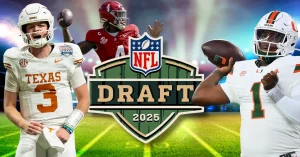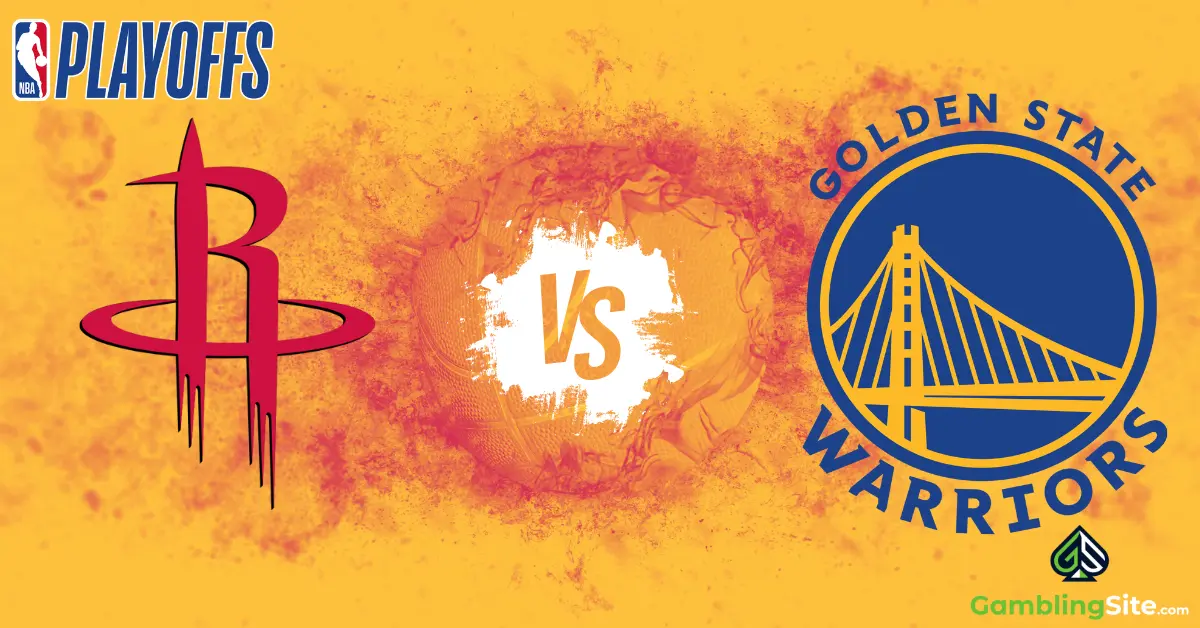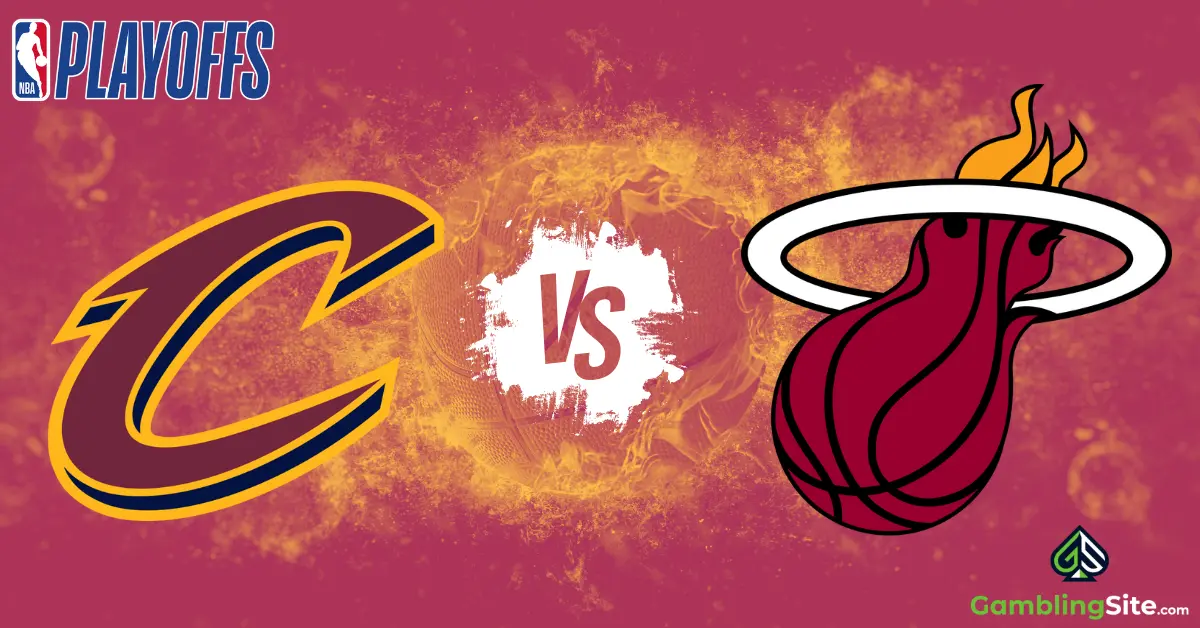Best Days of the Week to Bet Sports Based on Historical ROI

You’ve probably spent plenty of time thinking about what to bet on. But do you ever think about when you bet?
If you don’t, you should change that! As it turns out, timing plays a way bigger part in betting success than most of us realize. Just like line movement and public money, the day you make your bet can influence how much value you’re really getting. And historical data shows that there’s more to it than luck or superstition. There are real, measurable patterns in return on investment (ROI) depending on the day of the week.
Who would’ve thunk? That’s why we are going to look at what the best days to bet on every major sport are based on ROI trends that have been collected over several years. If you’re into the NFL, NBA, MLB, or college action, we’ll tell you how little changes in your timing can turn into smarter bets and better results!
Why the Day You Bet Matters
The majority of the population thinks that betting is only about choosing the right team. But that’s not all that matters: timing your bets right can be just as important as what (or who) you’re betting on.
Betting markets never stay static. Lines open, adjust, and react to the money that’s coming in. Early on in the week, odds are shaped by sharp bettors, and those who bet with good info, not on emotion. Later on in the week, the public money begins to roll in, and that’s driven by mainstream opinion, highlight reels, and the ESPN ticker.
That combo creates opportunities, but only if you know when to get in, like the following examples:
- Early-week NFL bettors usually get much better lines before the market changes.
- Late NBA bettors could be reacting to player rest or injury news that wasn’t available earlier.
- Midweek MLB games usually have way less betting volume, and that can cause softer numbers.
Sharps know this, so they track when the market is softest, when the public pushes lines too far, and when the books make subtle adjustments. If you’re betting without paying attention to the day, you could be leaving a ton of value in the wind.
How ROI Was Measured
If we’re going to talk seriously about which days of the week have better betting value, we need to start with how that value was tracked. It’s one thing to say Sunday mornings are great for NFL betting, but unless that’s backed up by real numbers? It’s only speculation.
For our analysis, the ROI was calculated using the standard method:
ROI = (Total Profit ÷ Total Amount Wagered) × 100
If you bet $100 and made $105 back, that’s a +5% ROI. If you bet $100 and got $90 back, that’s a -10% ROI. It’s the cleanest way to measure performance across different sports, bet types, and days of the week, especially when using flat bets, which were applied across the board to keep the results consistent.
What Types of Bets Were Included?
The data we used focused on straight wagers: moneylines, spreads, and totals. Parlays and teasers were excluded since those bets carry different risk profiles and can distort long-term ROI, even when a few big wins come through. Our goal here was to track consistent betting behavior across time, not chase anomalies.
The bets were also recorded pre-game only. There were no live bets, in-game adjustments, or cash-out features factored in. This made it easier to measure how timing before the event impacted the closing lines and final results.

Where Did the Data Come From?
To guarantee that it was neutral and reliable, the numbers were pulled from the following:
- Publicly available bet history databases
- Historical line movement archives from major sportsbooks (BetMGM and FanDuel)
- Community tracking platforms like Action Network and BetStamp
We filtered out all user-generated win/loss records and concentrated on the systems and tracking logs that were consistent, timestamped, and verifiable across multiple sources.
How Far Back Does the Data Go?
Almost all of the data we reviewed spans the last 5 to 10 years, depending on the sport. NFL and MLB had longer-range data and went back as far as 2012 in some cases, and newer tracking for NBA and college sports covered closer to 6 or 7 seasons. That range gave us enough of a sample to see weekly ROI patterns that weren’t based on any flukes or one-season swings.
The result meant we got a solid view of which betting days returned better value via different leagues and betting markets.
Best Days to Bet NFL
If there’s one sport where timing makes a massive difference, it’s the NFL. The league’s weekly schedule, heavy media coverage, and huge influx of public money make it one of the most volatile betting markets, especially as it gets closer to game day.
Historically, Tuesday and early Wednesday have shown strong ROI over several tracking databases. Those early lines, which were released shortly after the previous week wraps, are usually softer because sportsbooks haven’t fully adjusted for injury reports, matchup mismatches, or public narrative. Sharps love this window. They grab numbers before they move. And once they do? The rest of the week becomes a game of catch-up for everyone else.
By Friday afternoon, the books have adjusted for midweek bets, player statuses, and betting volume. And by Sunday morning, especially after the early inactives are posted, another shift hits, and those are the late bettors that come in hard, and public money floods the most popular matchups.
If you’re backing the better team, earlier in the week is usually better. Lines tend to tighten as game day gets closer, meaning value on favorites will get eaten up by the time everyone’s betting on Sunday morning. Getting a favorite at -2.5 on Tuesday could turn into -3.5 or worse by kickoff.
Interestingly, underdogs, especially the unpopular ones, usually offer better value later on in the week. As public money comes in on the big-name teams, sportsbooks will sometimes shade lines toward those favorites, which inflates the underdog numbers. That means if you like a dog, it might be worth waiting until Saturday night or Sunday morning. But be careful that you’re not betting on a number that’s moved for a good reason (like a main player’s injury news).
Quick Tip for NFL ROI:
– Tuesday/Wednesday: Strong ROI for sharp bettors grabbing early line value.
– Sunday morning: Sometimes useful for last-minute injury clarity, especially if you’re betting totals or player props, but usually worse for favorites.
– If you’re betting the favorite, earlier is better. If you’re betting the dog, waiting can sometimes give you a better number, but not always a better result.
Best Days to Bet NBA
The NBA is a completely different animal from the NFL. You’re dealing with a nightly schedule, player rest days, travel fatigue, and last-minute injury news that can completely shift the market within minutes. That makes timing delicate, but it also creates pockets of value during the week.
Over multiple seasons of tracked data, Tuesdays and Thursdays favor stronger ROI for straight bets, especially against the spread. Why? There are less games. On those lighter slates, the sportsbooks have more time to fine-tune their lines, but so do bettors. With fewer matchups to research, sharps can zero in on any mispriced games and take advantage before the public floods in closer to tipoff.
Plus, books can’t always hide the weak lines behind volume. If there are only 2 or 3 games on a Tuesday night, a number that’s even slightly off will draw attention from sharp bettors and quickly get corrected. That brief window, which is usually in the morning or early afternoon, is where you’ll find the best value.
One of the biggest edges in NBA betting is monitoring the injury reports. If you’re fast and connected, midweek games give you more time to react to rest day confirmations, load management reports, or unexpected lineup changes. The late scratches usually occur closer to tipoff, so if you’re betting early in the day, especially on a Tuesday or Thursday, you can sometimes get ahead of the move.
Those who wait for injury news and jump in right before tipoff can still find value if the public pushes the line too far. That’s where fading the move makes the most sense, mainly when the number overreacts to one player sitting.
Weekend NBA games, for the most part Friday and Saturday, draw heavier public money. Casual bettors are way more active, betting on bigger matchups on national TV or star-driven games. That creates more volatility and sharper lines. In most cases, the ROI on weekend NBA betting will dip compared to midweek plays.
Quick Tip for NBA ROI:
– Tuesdays/Thursdays: Smaller slates = more focused research and better ROI.
– Early betting works when you trust your injury reads. Late betting works when the public overcorrects.
– Weekends usually favor the sportsbooks, not the bettors.
Best Days to Bet MLB
There are 162 games per team and action nearly every day of the week, which means that baseball gives bettors more opportunities than any other major sport. But more games don’t always mean more edges. Nope! That high volume makes it even more important to know which days of the week will actually deliver value, because not all game days are the same.
Over several seasons of tracked ROI data, Wednesdays and Thursdays have produced better returns for straight bets compared to the rest of the week. That seems random at first glance, but there are a few solid reasons behind it.
Midweek games can (and do) fly under the radar. You’re not getting the big-name pitching duels or Sunday night ESPN matchups. Casual bettors are less active, and sportsbooks don’t always put the same energy into sharpening every single number. And that creates an opening.
Smaller-market teams playing in getaway-day afternoon games? That’s the kind of situation where fewer eyes = softer lines. Chiefly, when the betting volume is low, the midweek matchups become a prime hunting ground for the bettors who do their homework.
Most MLB teams roll through a 5-man rotation, and once you follow it closely, you’ll notice patterns that are tied to performance, rest, and bullpen fatigue. Midweek games usually feature back-end starters or long relievers. That means more variables and more chances for the line to miss.
Sharp bettors who track pitching matchups, particularly the ones with lesser-known arms, are able to spot mispriced totals and underdog value on Wednesdays and Thursdays, before the market adjusts.
You’ll also see odd travel spots pop up midweek, mostly on Thursday. Teams that are finishing a series in one city, then flying across the country for a weekend set, will rest their starters or pull pitchers early. If you’re paying attention, these are the moments when the oddsmakers might miss motivation or rotation news, and you can get in before they adjust.
By the time Friday and Saturday arrive, the books are ready. Lines are sharper, public money is flowing, and the more casual bettors are back in the mix. Volume is higher, and even though there are more games to choose from, the edge begins to shrink.
Quick Tip for MLB ROI:
– Wednesday and Thursday games show stronger ROI historically, predominantly for underdogs and totals.
– Fewer eyes = more opportunity for sharp bettors who are following rotations and can spot fatigue angles.
– The earlier that you can catch a bad line, especially on midweek afternoons, the better.
Best Days to Bet NCAAF / NCAAB
Weekends get all the love and hype in college sports, but midweek games might actually be where the real value lives. If you’re betting on football or basketball, the day of the week is a main factor in how sharp (or soft) the market is, and ROI trends make that pretty obvious.
Saturday is college football’s main stage. Every sportsbook is flooded with action, the lines have been bet into all week, and public money is all over the place. While that makes for a fun sweat, it also means that the lines are about as efficient as they’ll ever be by the time you get to Saturday morning.
But earlier in the week? That’s where things can get really interesting.
Tuesday and Wednesday night MACtion games, you know, the ones that feel like no one is watching on ESPN2, have shown surprisingly strong ROI for sharp bettors. Why? There are fewer viewers, less public betting, and usually softer opening lines. Books know the action will be limited, so they don’t always put the same attention into pricing them. That leaves a lot more room for bettors who’ve done their research.
The same goes for Thursday and Friday night games, primarily in smaller conferences. If you’ve followed injury reports and coaching trends, you’re usually ahead of the crowd, and sometimes ahead of the sportsbooks.
In college basketball, weekday games have some similar benefits. Saturdays are packed with marquee matchups and casual betting volume. That means that the lines get hammered into shape by game time, and anything that opened soft is long gone.
But Tuesday through Thursday games, mainly in smaller conferences, will deliver stronger ROI. When there are only a few games on the board, sharp bettors are able to zero in on any mismatches or totals that have been mispriced. Meanwhile, the public is mostly waiting until Saturday.
The other benefit? College basketball games during the week aren’t on anyone’s radar. That means the public perception isn’t pushing lines in the same way, and sharp action can move the number with way less resistance.
College football and basketball both see a flood of public money hit the market late in the week, chiefly on Friday night into Saturday morning. The surge of action can create artificially inflated lines on popular teams, and that sets up opportunities to fade favorites or grab underdogs with extra value.
If you’re betting with the public on Saturdays, you’re betting into their number. If you’re getting in earlier, or on a Wednesday night, you’re usually getting ahead of it.
Quick Tip for College ROI:
– Tuesday–Thursday NCAAF (MAC, Sun Belt, smaller conferences) shows hidden value due to the lower volume and softer lines.
– Weekday NCAAB games, particularly in mid-majors, offer better returns than those stacked Saturday slates.
– Stay away from crowded betting windows unless you’ve locked in your number early.
Average ROI by Day and Sport
We’ve broken down the trends by sport, but if you want a quick snapshot of how average ROI lines up over the week, look at the table below!
| Sport | Day of the Week | Average ROI | Notes / Trends |
|---|---|---|---|
NFL | Tuesday | +4.1% | Best day to catch early value before the market adjusts |
NFL | Sunday AM | -1.3% | Public money has already shifted lines, and favorites are overpriced |
NBA | Tuesday/Thursday | +3.2% | Smaller slates, sharper bets, less noise |
NBA | Friday/Saturday | -2.4% | Heavy public betting, sharper lines |
MLB | Wednesday/Thursday | +2.8% | Lower-profile games, weaker lines, underdog value |
MLB | Saturday | -1.1% | Lines sharpened by volume, especially in marquee matchups |
NCAAF | Tuesday/Wednesday | +3.6% | Smaller conference value (MACtion, Sun Belt, etc.) |
NCAAF | Saturday | -0.9% | Lines hammered by public and media influence |
NCAAB | Tuesday-Thursday | +2.7% | Mid-major value before Saturday’s big slate |
NCAAB | Saturday | -1.5% | Line efficiency increases with volume |
FYI: All of the ROI values are based on a flat $100 betting model using historical data over 5–10 years. Variance exists season to season, but long-term trends hold steady over multiple data sources.
Other Factors That Impact ROI
We’ve told you what day of the week gives you better ROI, but that’s only half of the story. A few other elements can make or break your returns, even if you’re betting on the “right” day. The following is what else you should be paying attention to!
Time of Day vs. Day of Week
The time you place a bet matters just as much as the calendar day. For example:
- In the NFL, betting Tuesday morning vs. Friday afternoon can mean a difference of a full point or more on the spread.
- In the NBA, early-day lines might not account for player rest or any late scratches. Waiting until closer to tipoff, mainly for midweek games, can actually help if you’re tracking lineup news.
- In college sports, early-week underdog value usually dries up by Thursday. Get in too late, and you’re betting a worse number with the same risk.

So even on a good ROI day, a bad time can erase your edge.
Line Shopping = Built-in ROI Boost
If you’re not comparing odds across different betting sites, you’re losing money, plain and simple.
If you’re betting on an underdog at +120, somewhere else, the same team could be listed at +130. Those extra ten cents can turn a break-even season into a profitable one.
Game Volume and Market Noise
Big slates (like NFL Sundays or Saturday college basketball) create a different kind of pressure. More games = more volume = more casual bets flooding the market. That can either work for you or work against you.
- Heavy volume means more stable lines, but also more competition for sharp edges.
- On lighter slates (think Tuesday MAC football or a four-game NBA night), the lines may be softer, but they also move faster and are more vulnerable to sharp action.
Fewer games mean there is more room to see mistakes, but you have to move early and be ready for when the market shifts!
Key Takeaways for Smarter Betting
We’ve covered a lot, but what all that data and timing boils down to is the following tidbits that can start using:
- NFL bettors: Your best shot at value is earlier in the week, like on Tuesday or Wednesday. That’s before the public piles in and the lines get hammered into shape.
- The NBA sharp money tends to hit on Tuesdays and Thursdays—lighter slates = more focused bets and more vulnerable lines.
- Midweek MLB games (especially Wednesdays and getaway-day Thursdays) give up more value than you’d expect. Underdogs and totals will pop here due to travel fatigue and low volume.
- College football and college hoops deliver some of their best value on the weeknights, not on the popular Saturday showdowns. Think MACtion, small-conference matchups, and totals that move late.
- Don’t overbet on crowded slates like Saturday mornings or Sunday afternoons unless you’ve locked in your line early.
- Line shopping adds instant ROI, even on low-percentage bets. Don’t leave money on the table by settling for the very first number that you see.
- Track your own betting! Every bettor is different. If Tuesdays work for the market but not for you, your data will tell you what’s happening.
Final Thoughts: Timing Your Bets for Maximum ROI
Betting timing matters a lot more than most people realize. A solid read on a game won’t get you very far if you’re betting it at the worst possible number. If you’re locking in NFL lines before the market changes or seeing midweek value in college hoops, timing can turn a good idea into a profitable one, or it can take away that edge before the game even begins.
Here’s a quick recap of why you should time your bets for the max ROI:
- The NFL lines usually offer the best value early in the week.
- The NBA and college sports tend to favor midweek bettors who are ahead of injury news and public movement.
- The MLB rewards those who pay attention to midweek matchups with less action and lots more opportunity.
Even a few measly percentage points of ROI here and there can make a big difference across a full season. The more consistent your habits are? The easier it is to build an advantage that lasts.
Tracking your own ROI day of the week is more than helpful! It can show you patterns that you’d never see, and you can use that info to refine your timing, cut out any wasted bets, and increase your returns.
Want to put your timing into practice? You can! Check out our Sports Betting Picks and Strategy Guides to get started!

Alyssa contributes sportsbook/online casino reviews, but she also stays on top of any industry news, precisely that of the sports betting market. She’s been an avid sports bettor for many years and has experienced success in growing her bankroll by striking when the iron was hot. In particular, she loves betting on football and basketball at the professional and college levels.








